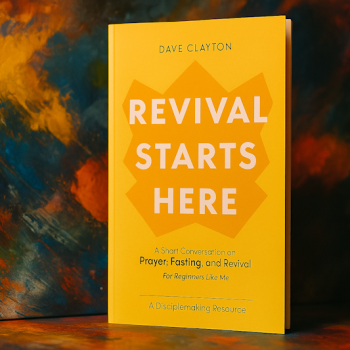
This Lead a Quiet Life blog on Patheos focuses on a life lived in light of Paul’s command in 1 Thessalonians 4:11-12. A few years ago, this verse became my key verse for this season of my life, and I have enjoyed examining it’s richness. This verse has a lot to teach us about finding contentment, and ultimately through that contentment, joy. In this blog post, I also want this passage not be only be something I examine, but a passage to examine my life by. This verse has the potential to be a plumbline to the way I invest in the places I live, work, worship, and play. In many ways, this is an invitation to make sure we are reflecting God’s Goodness in our daily lives.
In this passage, Paul encourages believers to lead a quiet life, mind their own business, and work with their hands so that they may win the respect of outsiders and not be dependent on anyone. This passage highlights a posture of diligence, integrity, and purposeful living—qualities crucial to how we interact with others in every sphere of our lives: home, work, worship, and play. Paul’s guidance is not just for church leaders but for all believers, as it underscores our collective missional responsibility. As Theologian Leon Morris explains it, “Following the injunction to abound in love for one another, Paul exhorts his readers to take the lowly place. That is the way love acts.”
This is more than a way of life, it is a way of mission.
The passage calls for more than just intentionality; it challenges us to embody a lifestyle that does not undermine our faith or testimony, but rather testifies to our faith and the goodness of God that we have learned to be content with. The essence of Paul’s message is to live in such a way that reflects the goodness and good news of God to those around us, making our daily lives a story and witness of the sustaining grace and contentment of God despite the trials and hardships of life. At its core, Paul’s exhortation is about maintaining priorities that honor God—being still with God’s presence and knowing he is God (quiet life), avoiding unnecessary meddling (mind your own business), working diligently in our God-given responsibilities (work with your hands), and living in a manner that demonstrates our mission to others (win the respect).
This approach to life from Paul in 1 Thessalonians 4:11-12, ensures we find contentment and God, and from that existence we overflow with the goodness of what we experience, making our lives a tangible expression of God’s goodness and good news. We are a trailer and foretaste of the Kingdom that is breaking in here-and-now, a slow kingdom coming, steadily making all things news. Again, Leon Morris offers a look at the tension in this passage – “In one sense the Christian must live without regard to the opinion of the world, for his standards are those of his Master, not those of the community in which he lives. But in another sense he must always have in mind the opinion of the world, for he must not bring discredit on the faith by being careless of appearances.”[2]
This passage is a plumbline of our lives.
In light of 1 Thessalonians 4:11-12 and its call to live a life that reflects God’s goodness and mission, Paul offers practical and deeply missional guidance: “You should mind your own business and work with your hands, just as we told you, so that your daily life may win the respect of outsiders and so that you will not be dependent on anybody.” There are seven movements in this passage that help us to wrestle with this exhortation that calls for ongoing reflection in our own lives. As I consider these six stops along the journey, here are some questions I am pondering and you might ponder in light of such a significant charge, which may also help us to assess where we are at with this charge and our own missional focus and lifestyle:
- How am I embodying a “quiet life” in my daily interactions?
- Paul calls us to model a quiet life, characterized by stillness and recognition of God’s sovereignty. Am I achieving this stillness, or am I entangled in constant noise and busyness? In what ways am I respecting boundaries and focusing on my own responsibilities?
- Am I truly minding my own business?
- Paul’s directive to mind our own business encourages a mindset of focus and faithfulness. Are there areas where I am inappropriately intervening in others’ lives? Am I diligent and ethical in my God-given roles?
- How faithfully am I working with my hands?
- Paul instructs us to use our skills and abilities with integrity and responsibility. Do I view my work as an investment in God’s Kingdom? Is my work purposeful and creative, reflecting God’s values and beauty?
- How well am I adhering to the teachings I’ve received?
- Paul’s counsel aligns with broader biblical principles. Are the scriptures actively shaping my actions in the various areas of my life? Are they continually transforming who I am and how I live?
- How does my lifestyle reflect and proclaim the goodness and good news of God?
- Paul emphasizes that our daily lives should win the respect of outsiders. Are my actions and attitudes a true witness to God’s grace and contentment? Do I earn the trust of others through my conduct? If not, is it due to a lack of visible transformation in my life?
- How dependent am I on others right now?
- Paul is concerned not only with reflecting God’s goodness but also with avoiding undue dependence on others. Reflecting on the Lord’s Prayer, how might my dependency on others hinder my witness? Are there areas where I owe others or rely on them in ways that might compromise my mission?
By reflecting on these questions, we can better align our lives with the missional focus Paul describes. These questions help examine our lives and investments. This verse is a plumbline that can help to ensure that our everyday actions and attitudes genuinely reflect God’s Kingdom and our ability to collaborate with to its manifestation in our world.













